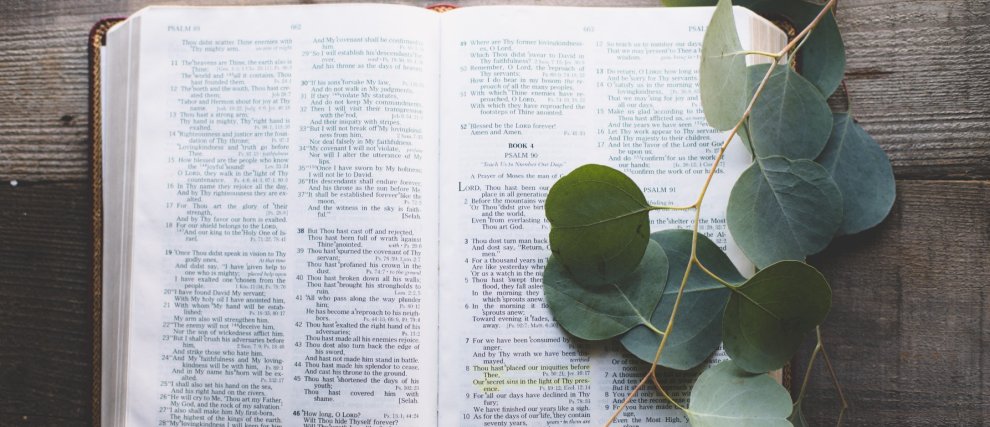The Mysteries of the Holy Rosary
When praying the Rosary, each decade of the chaplet is associated with a mystery. These mysteries correspond to the events in the life of Christ, seen through the eyes of the Virgin Mary. Discover the different mysteries of the Rosary and how to meditate upon them.
The Twenty Mysteries of the Rosary
Originally, there were 15 mysteries. However, Pope Saint John Paul II later added on the "Luminous Mysteries", making it that there are now 20 mysteries of the Rosary. You now have to pray 4 chaplets in order to recite 1 full Rosary (4 times 5 decades).
The Joyful Mysteries
The Joyful Mysteries correspond to the incarnation and childhood of Jesus.
The Annunciation of the Angel Gabriel to Mary;
The Visitation of Mary to her cousin Elizabeth;
The Nativity : the Birth of Jesus;
The Presentation of Jesus in the Temple;
The Finding of Jesus in the Temple.
The Luminous Mysteries
The Luminous Mysteries evoke the public life of Christ, which correspond to the three years preceding His death.
The Baptism of Jesus in the Jordan River;
The Wedding at Cana;
Jesus’ Proclamation of the Kingdom of God;
The Transfiguration;
The Institution of the Eucharist.
The Sorrowful Mysteries
The five Sorrowful Mysteries retrace Calvary and the death of Christ.
The Agony of Christ in the Garden;
The Scourging of Christ;
The Crowning with thorns;
The Carrying of the Cross;
The Crucifixion and death of Christ.
The Glorious Mysteries
These last sets are the Glorious Mysteries, and they correspond to the Resurrection of Christ and the following events.
The Resurrection of Christ;
The Ascension of Christ;
The Pentecost;
The Assumption of Mary;
Crowning of Mary in Heaven.
The Mysteries and the Bible
The Mysteries in the Gospel
If we want to meditate on these events, it's important to take a look at the Holy Scriptures in order to be nourished. Most of the events can be found in the Gospels. However, some of the events of the Glorious Mysteries can be found in the Acts of the Apostles or in the Book of Revelation.
Not all of the evangelists spoke of each event. For example, it is mainly St. Luke who recorded the events of the Joyful Mysteries, whereas it is St. Mark who spoke of the Luminous Mysteries. And of course, it is St. John who tells us about the Sorrowful Mysteries, as he was the one who accompanied Jesus to the Cross. But remember, the main objective of meditating upon the mysteries is to be touched by the Bible passage, regardless of which one of the Apostle is relating the events.
Another well-known prayer method to meditate on the Holy Scripture is the Lectio Divina (a reading of the Holy Bible).
The Mysteries with the Psalms
Even though the life of Christ is part of the New Testament, it was also announced in the Old Testament, making it possible for us to meditate the Mysteries with other holy writings such as the Psalms.
The Joyful Mysteries :
The Annunciation: “I delight to do your will, my God; your law is in my inner being.” (Ps 40)
The Visitation: “Listen, my daughter, and understand; pay me careful heed. Forget your people and your father’s house.” (Ps 45)
The Birth of Jesus: “You are my Son; today I have begotten You.” (Ps 2)
The Presentation of Jesus in the Temple: “how lovely your dwelling, O Lord of hosts! My soul yearns and pines for the courts of the Lord.” (Ps 84)
The Finding of Jesus in the Temple: “Those who sow in tears will reap with cries of joy. Those who go forth weeping, carrying sacks of seed, will return with cries of joy, carrying their bundled sheaves.” (Ps 126)
The Luminous Mysteries :
The Baptism of Jesus: “As the deer longs for streams of water, so my soul longs for you, O God.” (Ps 42
The Wedding at Cana: “The Lord is my shepherd; there is nothing I shall lack.” (Ps 23)
Jesus’s Proclamation of the Kingdom of God: “A clean heart create for me, God; renew within me a steadfast spirit.” (Ps 51)
The Transfiguration: “You are the most handsome of men; fair speech has graced your lips, for God has blessed you forever” (Ps 45)
The Institution of the Eucharist: “He brings peace to your borders, and satisfies you with the finest wheat.” (Ps 147)
The Sorrowful Mysteries
The Agony of Christ in the Garden: “May cursing clothe him like a robe; may it enter his belly like water, his bones like oil.” Ps 109)
The Scourging of Christ: “Upon my back the plowers ploughed, as they traced their long furrows?” (Ps 129)
The Crowning with thorns: “Not for your sacrifices do I rebuke you, your burnt offerings are always before me.” (Ps 50)
The Carrying of the Cross: “But I am a worm, not a man, scorned by men, despised by the people. All who see me mock me; they curl their lips and jeer; they shake their heads at me.” (Ps 22)
The Crucifixion and Death of Jesus: “I will pay my vows to the Lord in the presence of all his people.” ( Ps 116)
The Glorious Mysteries
The Resurrection: “Therefore my heart is glad, my soul rejoices; my body also dwells secure, For you will not abandon my soul to Sheol, nor let your devout one see the pit.” (Ps 16)
The Ascension: “Lift up your heads, O gates; be lifted, you ancient portals, that the king of glory may enter.” (Ps 24)
The Pentecost: “How varied are your works Lord ! In wisdom you have made them all; the earth is full of your creatures.” (Ps 104)
The Assumption: “In embroidered apparel she is led to the king. The maids of her train are presented to the king. They are led in with glad and joyous acclaim; they enter the palace of the king.” (Ps 45)
The Crowning of Mary: “Indeed goodness and mercy will pursue me all the days of my life; I will dwell in the house of the Lord for endless days.” (Ps 23)
The Mysteries and Their Fruits in Our Lives
Looking back on the life and death of Christ is above all to find its fruits (benefits), meaning we, Christians, can learn a lesson from it, and ask God for the blessings which sprout from it, to help us move forward in holiness.
In each mystery, we can pray for an intention for ourselves, our loved ones or for the world.
For the Joyful Mysteries: humility (The Annunciation), charity (The Visitation), a spirit of poverty (The Birth of Jesus), obedience and purity (The Presentation of Jesus in the Temple), looking for God in everything (The Finding of Jesus in the Temple).
For the Luminous Mysteries: baptismal grace (The Baptism of Jesus), confidence in God (Wedding in Cana), full conversion (Proclamation of the Kingdom), contemplation (The Transfiguration), practicing the Sacraments (The Institution of the Eucharist).
For the Sorrowful Mysteries: contrition for our sins (The Agony), mortification of our senses (The Scourging), mortification of our minds and hearts (The Crowning of Thorns), patience in trying times (Carrying of the Cross), more love for Jesus and mankind (The Crucifixion and Death of Jesus).
For the Glorious Mysteries: faith (The Resurrection), hope (The Ascension), Gifts of the Holy Spirit (Pentecost), the grace of a good death (Assumption), trust in the Virgin Mary (Coronation of Mary).
Pray and Meditate the Life of Christ with Hozana
If you could receive the Gospel of the day every day, you would be able to meditate daily upon the life of Christ! So how about joining one of our many online prayer communities, and join other Christians in prayer, to make your prayer life more powerful?

